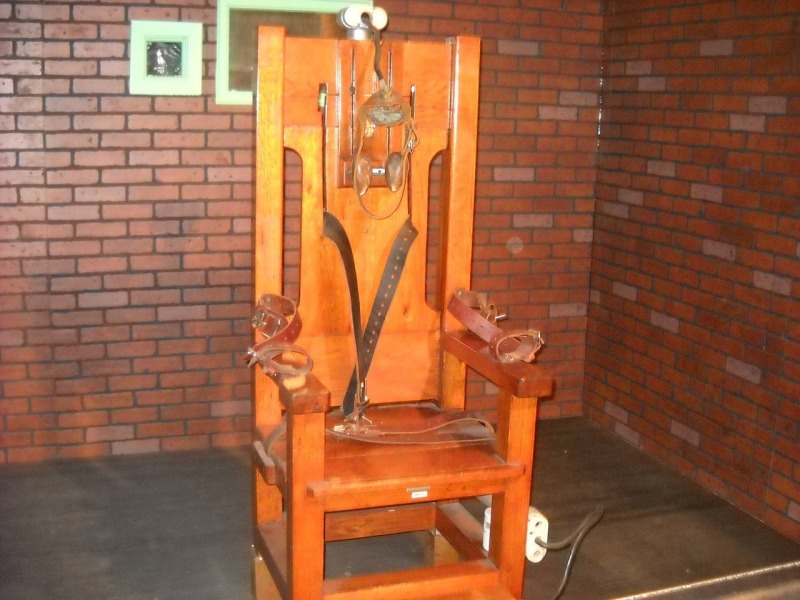
A new bill that gives judge’s discretion over whether or not to impose the death penalty on convicted individuals was passed and signed into law by Florida’s governor, Ron DeSantis. On the other hand, given that the church is opposed to the use of the death sentence, they are speaking out against the new bill.
New Law on Death Penalty
A report from the A.P. News stated that the decision of Gov. Ron DeSantis and state lawmakers to propose new legislation that would make it simpler to sentence convicted murderers to death comes after a jury at Marjory Stoneman Douglas High School voted 9-3 in favor of sparing the shooter, Nikolas Cruz, from the death penalty in November for his role in the shooting deaths of 17 people at the school in 2018. Instead of receiving a death sentence, the Parkland school shooter was given a life term.
As mentioned, the verdict in the Cruz case upset many people and may have been responsible for Florida’s decision to remove the condition that the death penalty be approved unanimously.
At the governor’s encouragement, republican legislators filed legislation to empower the court to decide on the death sentence, with only eight of the 12 jurors in favor. If the measure passes, Florida will be the only state in the country to apply this standard for imposing the capital penalty.
Moreover, the Catholic News Agency reported that on Thursday, Apr. 20, Gov. DeSantis approved a bill that will allow death sentences to be handed down to inmates in the state without the need for a unanimous verdict from a jury.
According to the recently passed legislation, for a prisoner to be given the death penalty, the jury must unanimously agree that at least one aggravating circumstance, including a particularly heinous or cruel crime, exists beyond a reasonable doubt. Additionally, the jury must recommend that the defendant be given the death penalty.
In such a scenario, the court has the discretion to impose the death penalty or a life sentence in prison on the prisoner. Suppose there are fewer than eight people on the jury who believe that the defendant should be executed. In that case, the jury must suggest that the defendant be sentenced to a life sentence of imprisonment without any chance of release on parole, and the court must carry out this recommendation.
Furthermore, Michael Sheedy, executive director of the Florida Conference of Catholic Bishops (FCCB), spoke on behalf of the state’s Catholic bishops to condemn the alteration as a “setback.” Church leaders in Florida have long been vocal in their support for abolishing the state’s use of the death penalty. They have supported sentencing offenders to life in prison instead of the death penalty.
Sheedy noted that the execution procedure in Florida must be as trustworthy and fair as possible, given the state’s continued use of the death sentence. When a jury is called to serve in any other capacity in Florida, the unanimity requirement applies. The most severe penalties that the state may hand out ought to necessitate the most stringent requirements.
Also Read: OKC Archbishop Calls To End Death Penalty After Court Affirmed Its Constitutionality
Death Penalty in Florida
As per Death Penalty Information Center, Florida was one of three states up until 2016 that allowed trial judges to inflict the death punishment if the verdict was not unanimous. In the case of Hurst v. State, the Supreme Court of Florida decided that the process breached the state’s legal framework. As a result, the legislature of Florida established a new punishment statute in March 2017 that required a jury to make a unanimous recommendation for execution before an appeals court could issue a death sentence.
Condemned prisoners can choose either electrocution or lethal injection as their method of execution. In addition, Florida’s youngest criminals put to death were 16 years old. Willie Clay’s execution was on Dec. 29, 1941, and James Davis’s execution was on Oct. 9, 1944.
According to the National Catholic Register, there are now 297 inmates on death row in Florida, of which only three are female. The number of people on execution row in Florida is the highest in the U.S.; the number of people on death row in California is more significant, but the death penalty in California has been suspended since 2019. As of 2020, there is not a single person on Florida’s death row who has been given clemency since 1983.
Related Article: Archbishop Thomas Wenski of Miami Echoes Catholic Church’s Stand Against Death Penalty

